


Beaumont is one of the bastide towns to which my friends Maggie and Mike introduced me. Maggie is in the foreground of the third picture; Mike in the distance behind her.
Built during the thirteenth and fourteenth centuries ‘bastides were developed in number under the terms of the Treaty of Paris (1229), which permitted Raymond VII of Toulouse to build new towns in his shattered domains, though not to fortify them. When the Capetian Alphonse of Poitiers inherited, under a marriage stipulated by the treaty, this “bastide founder of unparalleled energy”[5] consolidated his regional control in part through the founding of bastides. Landowners supported development of the bastides in order to generate revenues from taxes on trade rather than tithes(taxes on production). Farmers who elected to move their families to bastides were no longer vassals of the local lord — they became free men; thus the development of bastides contributed to the waning of feudalism. The new inhabitants were encouraged to cultivate the land around the bastide, which in turn attracted trade in the form of merchants and markets. The lord taxed dwellings in the bastides and all trade in the market. The legal footing on which the bastides were set was that of paréage with the local ruling power, based on a formal written contractual agreement between the landholder and a count of Toulouse, a king of France, or a king of England. The landholder might be a cartel of local lords or the abbot of a local monastery.’ (Wikipedia)
During the medieval Hundred Years War between England and France, the French rapidly fortified those towns that had not succumbed in the early destruction. Ownership tended to fluctuate between the two warring Houses, and when it was their turn, the English made good use of the fortifications that had been so effective against them. In fact, various websites inform us that Beaumont-du-Perigord was founded by England’s King Edward I in 1272.
The //about-france.com website claims that ‘the “Bastide” towns of southwest France are a growing tourist attraction, and comprise one of the largest collections of well-preserved mediaeval townscapes to be found anywhere in Europe’, Beaumont-du-Perigord, being a fine example.
Unfortunately I cannot be certain which was the next such town I visited with Maggie and Mike in September 2003, but I think it was Monpazier, founded by the English to keep out the French in 1285. It was to change hands between these two nations several times in the following few decades.

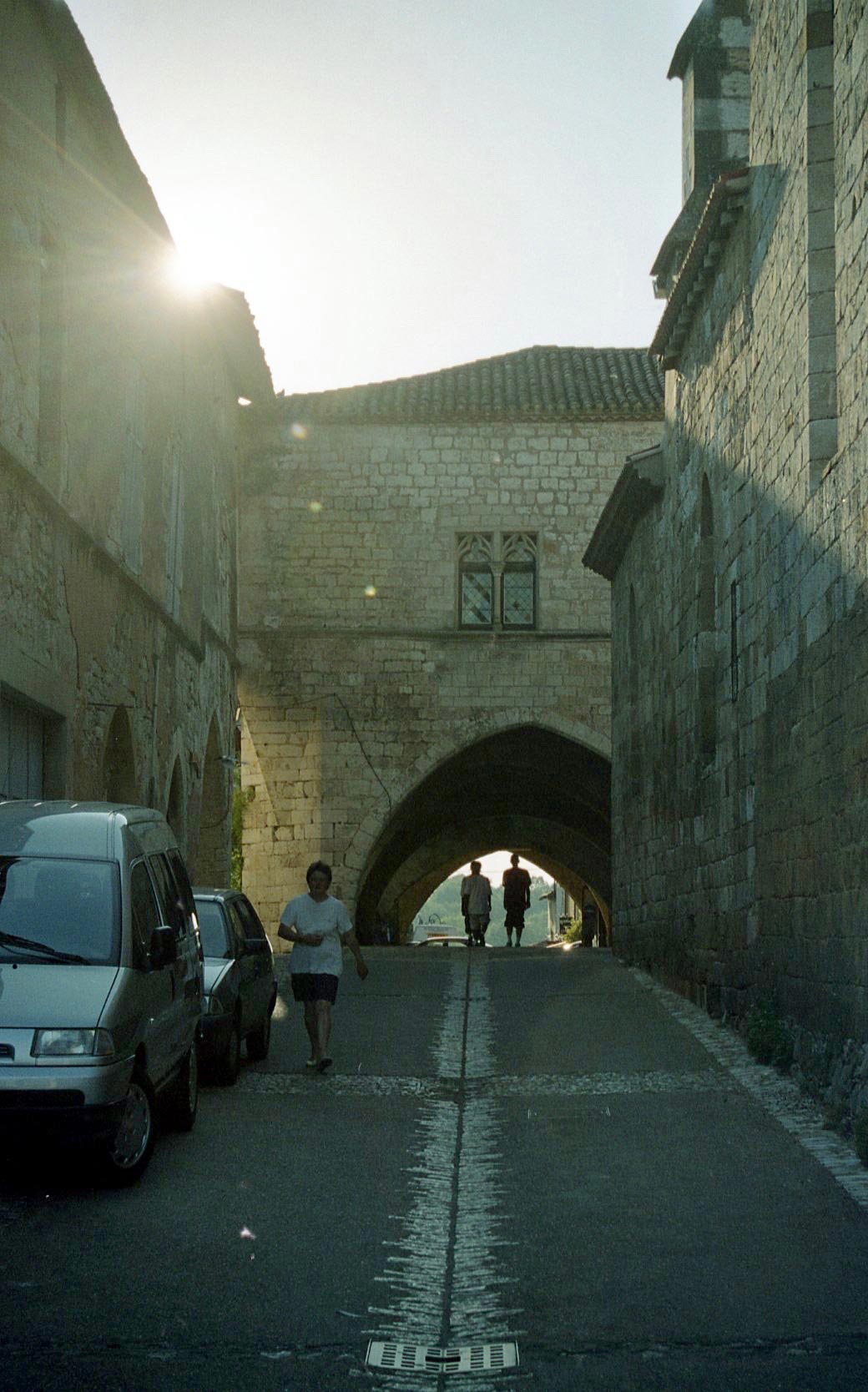
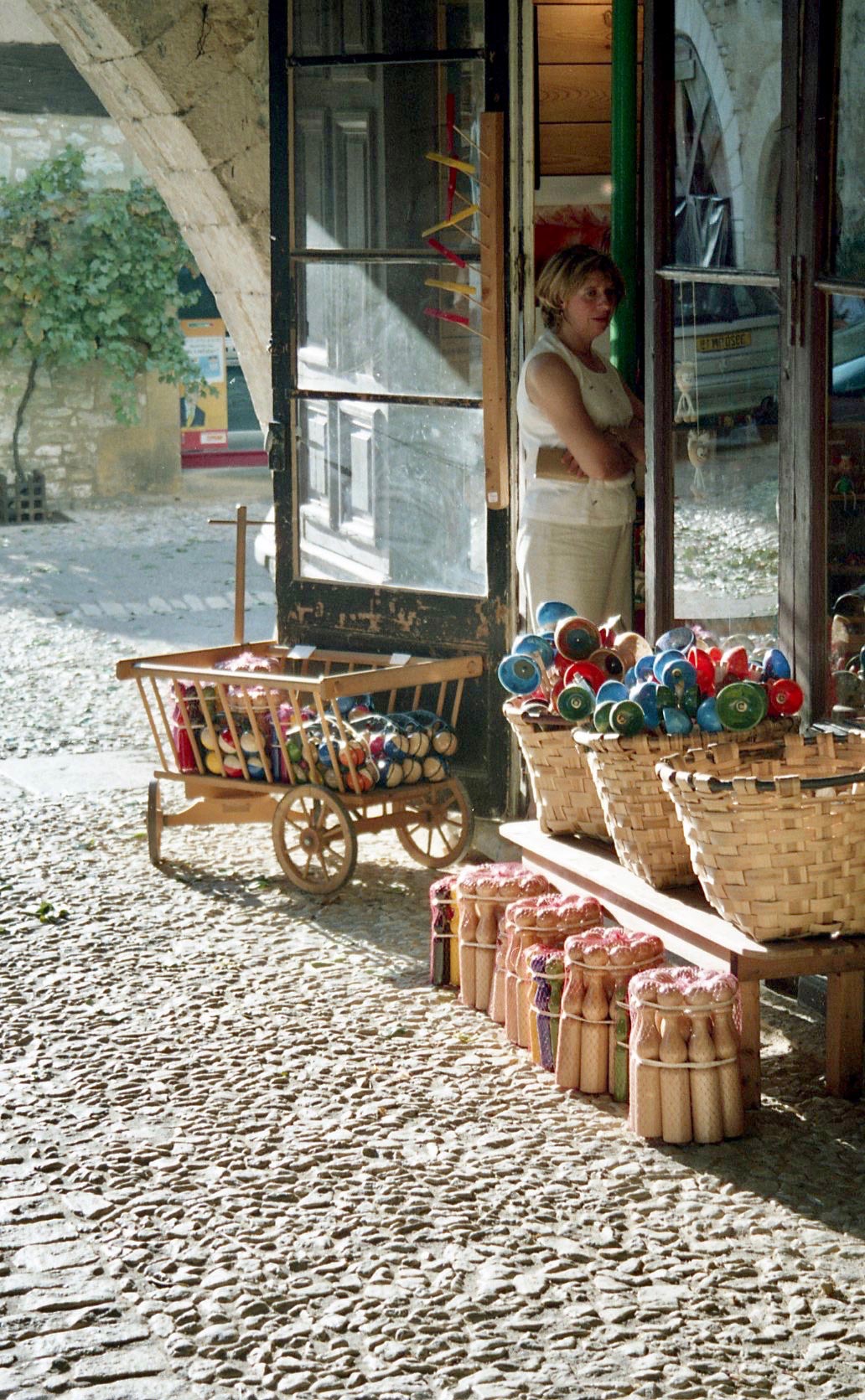
The main feature of a bastide is the central open place or square surrounded by colonnaded arches used for markets, and for political and social gatherings, now housing shops, such as wine merchants and toy suppliers. I enjoyed seeing baskets of diabolos, such as those brought back from holiday by my maternal grandparents.



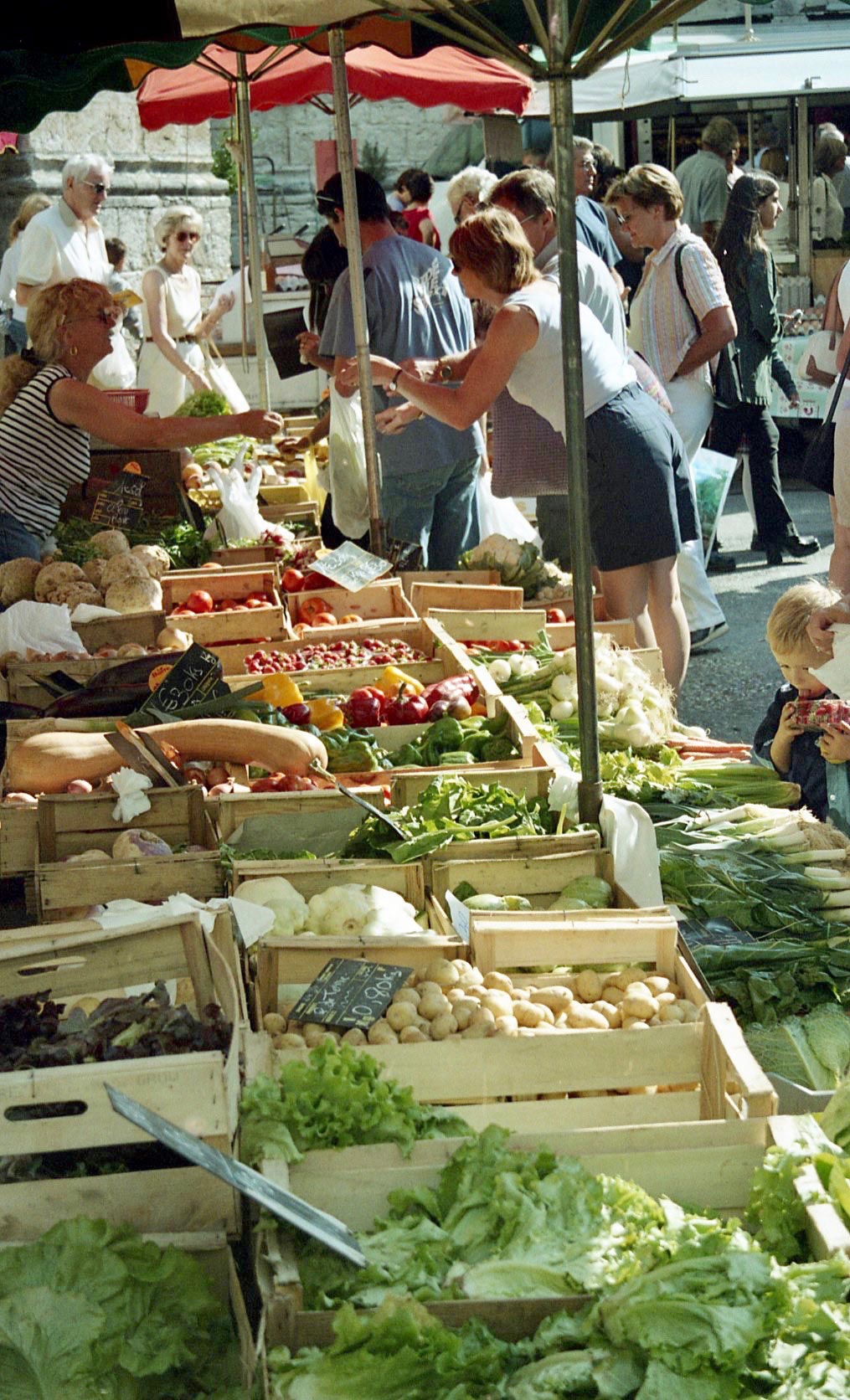

Colourful market stalls fill the square which is
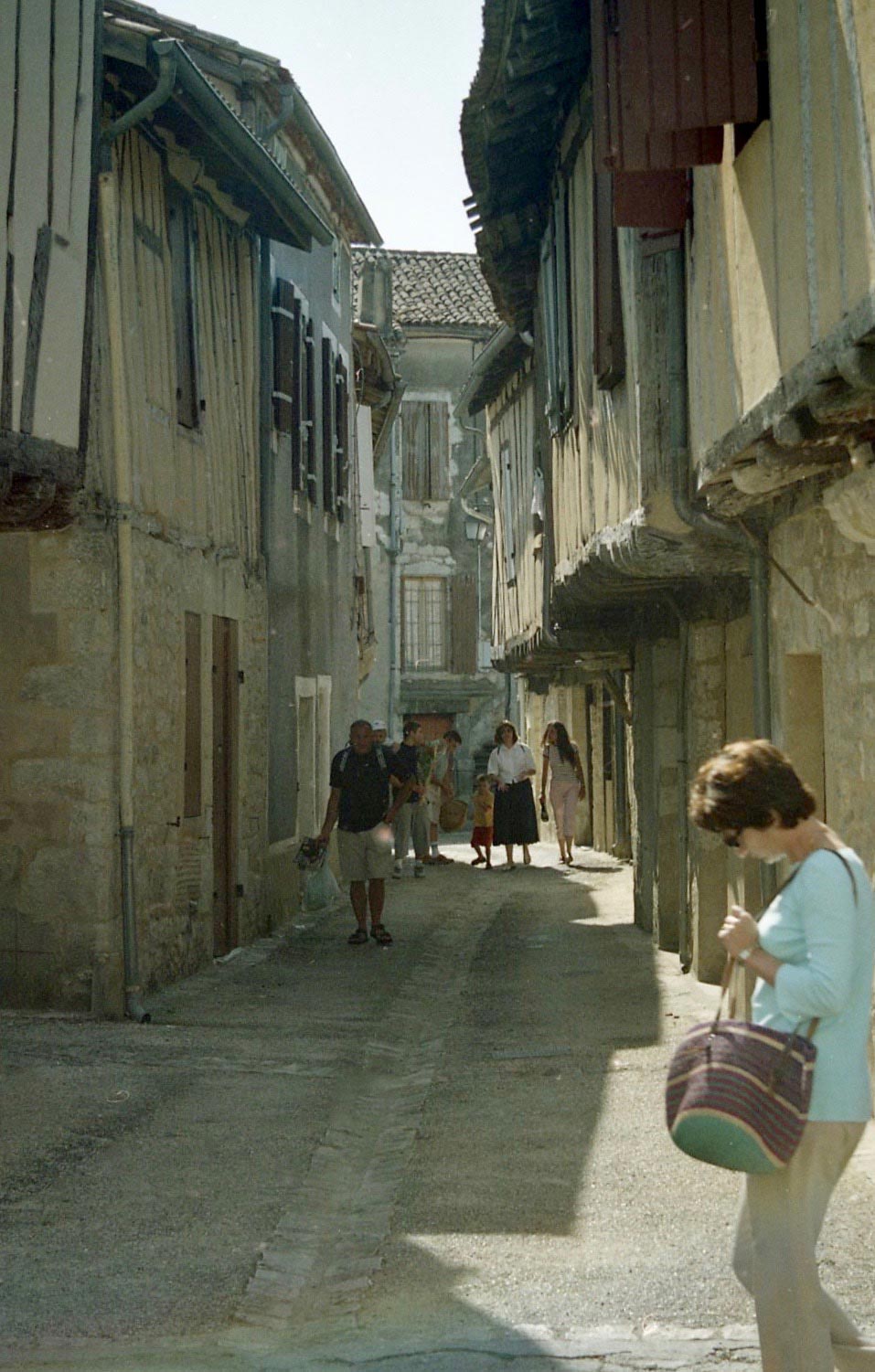


surrounded by grids of streets linked by narrow alleys or ruelles.
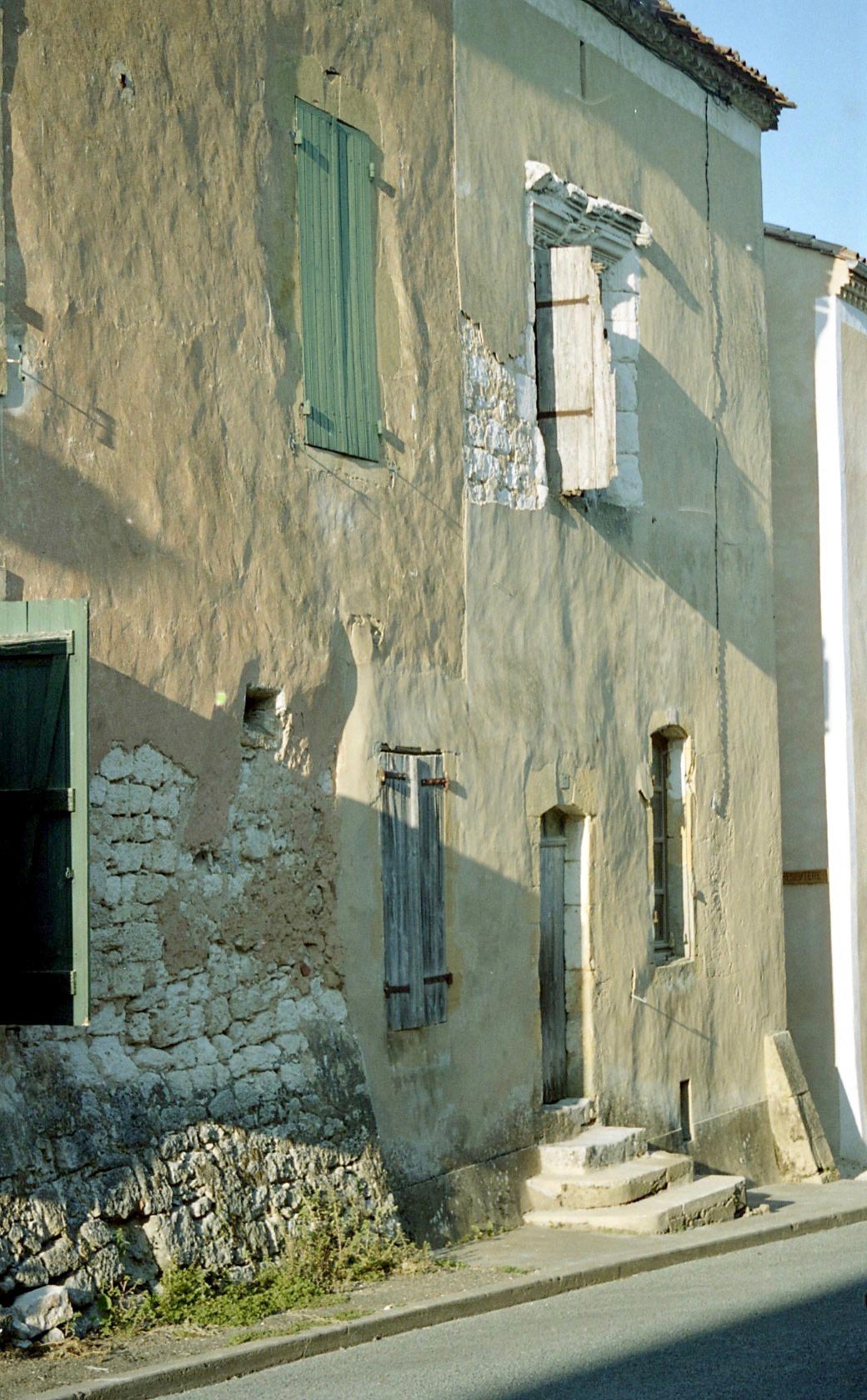


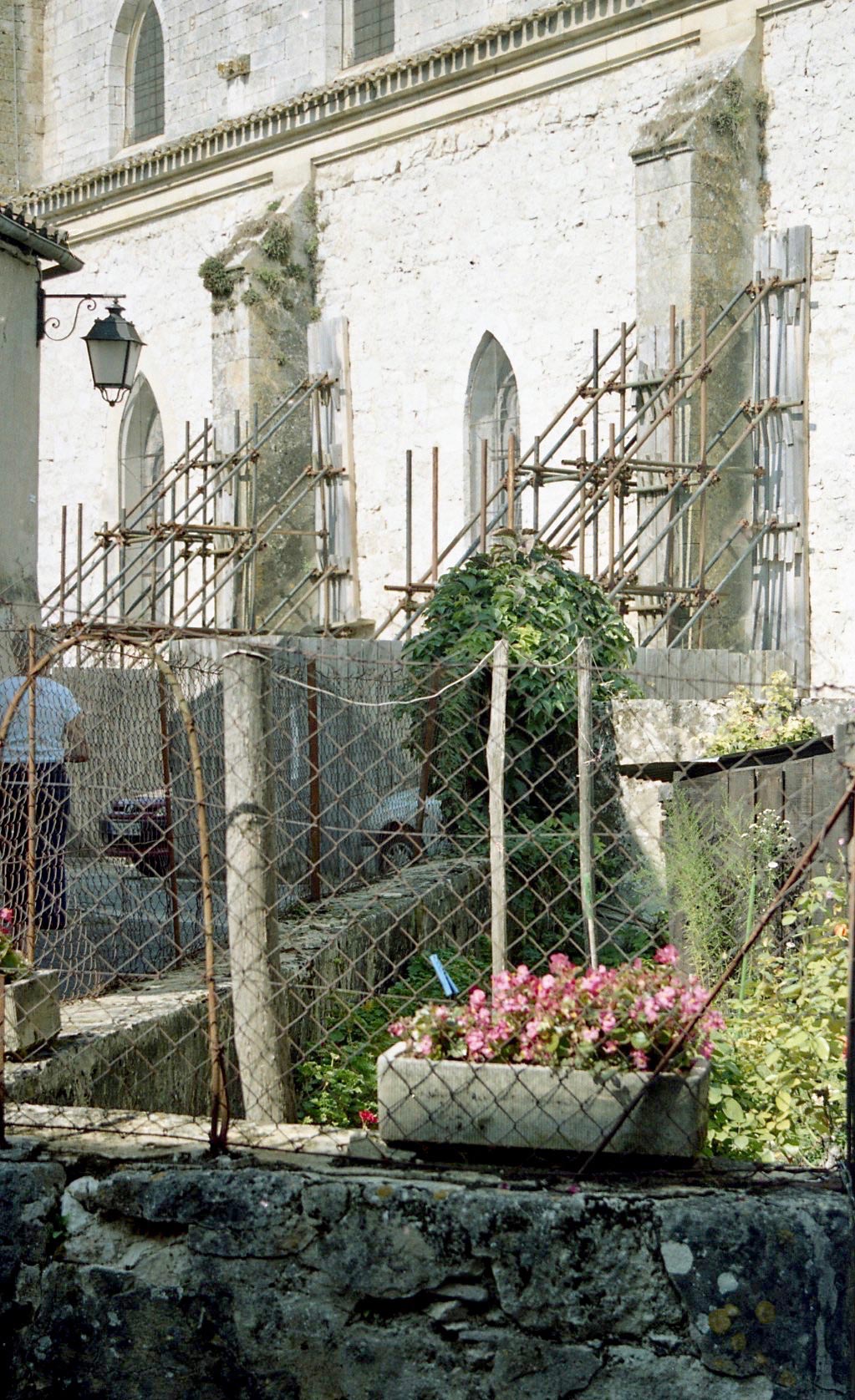
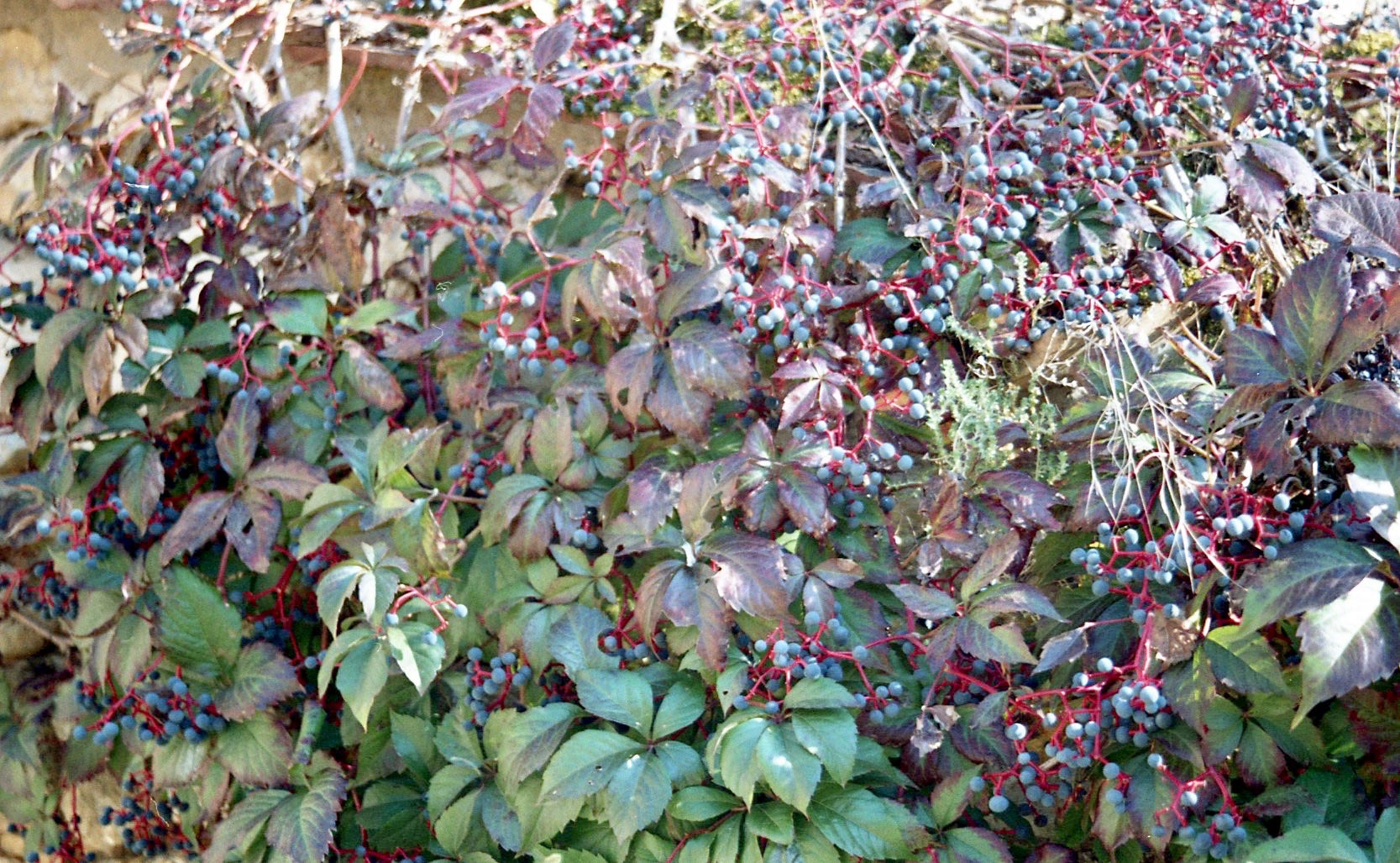
Weathered walls, iron gates, and tended gardens invite attention.
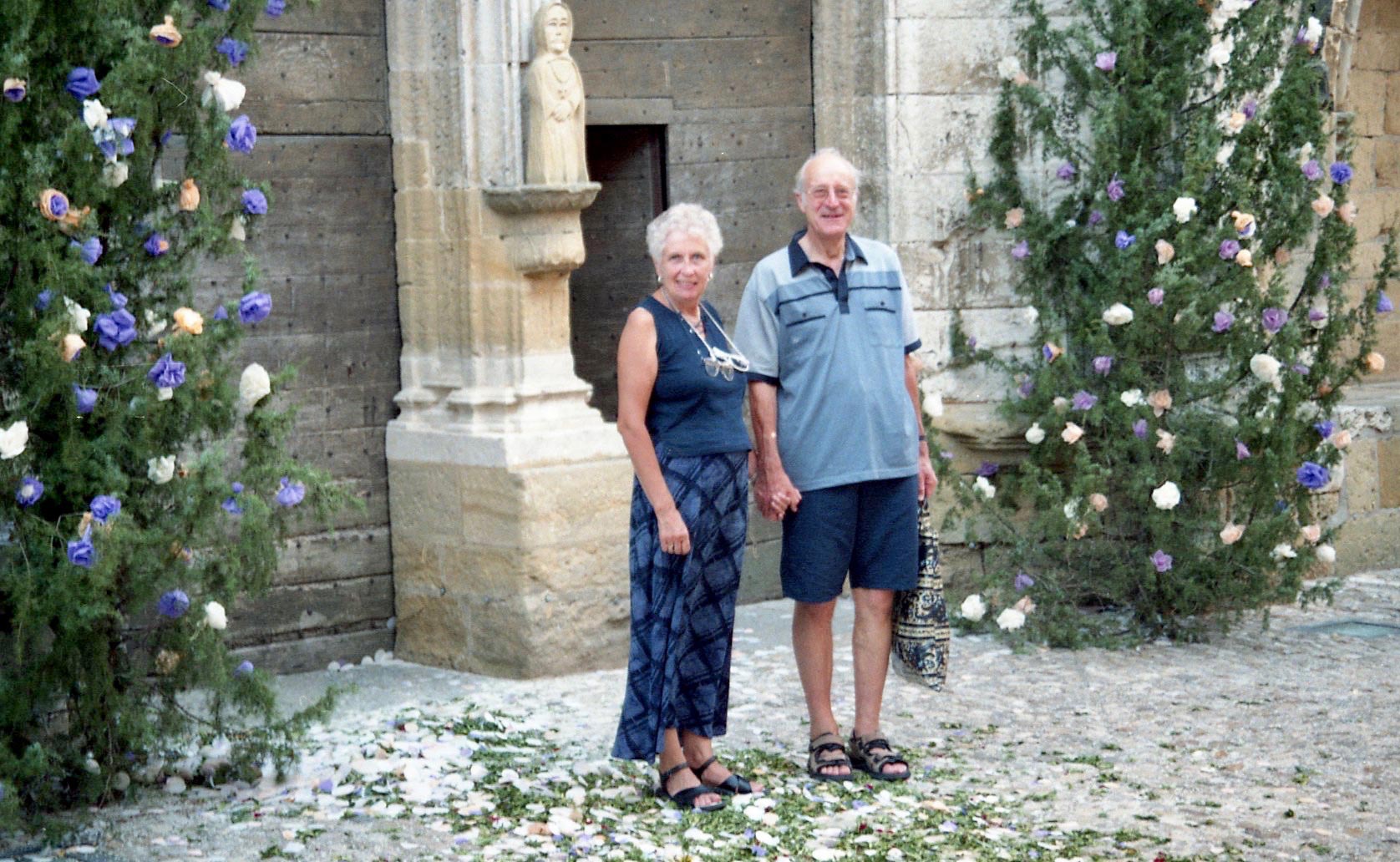
When we passed a church which had recently held a wedding, my friends thought it would be a good wheeze to pretend it was theirs.
So interesting, Derrick, and beautiful photos. I really like the archway and shadows in the header photo, and the light in the next photo in the gallery. I the photos of the ruelle, too.
Coincidentally, this is the second post today where French buildings and the Hundred Years War turned up. 🙂
What a coincidence, Merril. Thank you very much
HI Derrick, these are lovely pictures. I have never been to France, but hope to some day. I’ve not heard that expression “a good wheeze” before. It’s rather fun.
Thank you very much, Robbie
I learned something new and fascinating today. Lovely post and pictures.
Thank you very much, Pat
Thank you for this fascinating glimpse into French history. I wonder if any of my Gauffreau ancestors might have been involved.
It would be fascinating to find out, Liz. Thanks very much
You’re welcome, Derrick. It would be fascinating, but very time-consuming to research. I know next to nothing about that particular branch on the family tree.
I did look up the name and you came up on the first page 🙂
🙂
I’ve never been to France, but for places like this, I would go!!
I really like this area
Both places look charming
Thanks very much, Sheree. I thought you would like them.
I don’t know that part of France. It’s on my places to visit.
It would be wonderful to hear the French and the English of 1285. I don’t think that we would understand either language.
We wouldn’t. Thanks very much, John
“If walls (or streets) could talk!”
What amazing photos of such beauty, charm, architecture and history!
The market goods are beautiful!
That last photo is very sweet!
(((HUGS))) 🙂
Thank you very much, Carolyn X
Lovely shares Derrick… <3
Thanks very much, Sue
Wonderful photos, Derrick, as well as the detailed narrative.
Thank you very much, Steve
Thank you for the virtual tour of a lovely area, and for the history lesson, Derrick!
Your appreciation is very pleasing, Lavinia. Thanks to you, too
Being a lover of arches, this is a place I would enjoy. It looks like a good place for a medieval festival and knights. 🙂
Thanks very much, JoAnna
Loved the visit but I had to look up ‘bastide’ ‘cos we don’t have such things in Oz. They say there are some ‘bastides’ in England and Wales?
I wouldn’t be surprised, John. Thanks very much
Beautiful captures Derrick!
Thank you very much, Cindy
I’m homesick for France. Unfortunately, when I lived in Pau I didn’t have any wheels, so missed the delights portrayed in your post. I love French markets, though actually that extends to all markets!
Thank you very much, Helen
What a beautiful place! I love those market stalls! Gorgeous photos!
Thank you very much, Ribana. You would have done well with those veg.
Lovely post and great photos.
Thanks very much, Quercus
Somehow made me remember Columbia Road market in East London. No battlement there though.
Fascinating detailed information of bastides and lovely photos.
Thank you very much, Dolly
You are very welcome, Derrick.
What a gorgeous town. I would love to wander down those narrow streets. Thanks for the fascinating post, Derrick.
Much appreciated, Jane